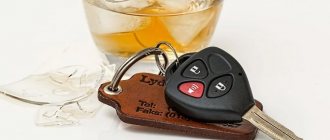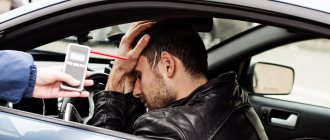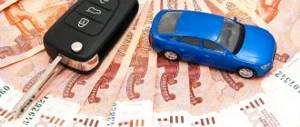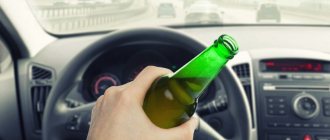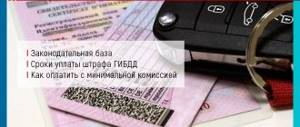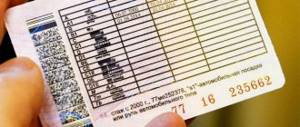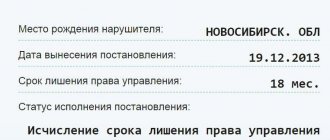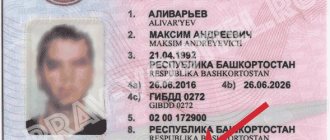A huge number of accidents on the roads happen due to drivers who drive while drunk or under the influence of drugs. In this form, a person cannot adequately assess the situation on the road. And therefore dangerous for other road users. If a driver is caught driving while under the influence of drugs, he may lose his license in 2021.
What is drug intoxication?
Drug intoxication is an altered state in which a person is under the influence of psychotropic and narcotic substances. At this moment, the driver may feel relaxed, euphoric, and joyful. Auditory and visual hallucinations also occur. Some types of drugs cause severe inhibition of the nervous system, as well as depression of basic functions. In this form, a person becomes extremely dangerous and can cause the death of other road users. The main symptoms of using illegal drugs in 2021 are:
Attention! If you have any questions, you can chat for free with a lawyer at the bottom of the screen or call Moscow; Saint Petersburg; Free call for all of Russia.
- Lethargy or excessive activity.
- Violation of perception of reality, behavior that does not correspond to the situation.
- Changing pupil size.
- Redness of the eyes.
- Poor coordination of movements.
- Incoherent speech.
- Hand trembling.
- Change in skin color.
- My eyes can often fluctuate involuntarily.
- The driver will not be able to touch his nose with his eyes closed.
In order to send a driver for a medical examination in 2021 if there is a suspicion of drugs in the body, there must be at least 3 of the signs listed.
When can your license be revoked for drug intoxication?
Note:
Drug intoxication is a state during which a person is under the influence of psychotropic substances. The citizen feels relaxed and euphoric. The person is filled with joy. Against the background of drug intoxication, he may be haunted by hallucinations. A number of substances lead to significant inhibition of the functioning of the nervous system. As a result, inhibition of the main function is observed.
Drug intoxication significantly increases the danger that a person poses to others while driving. As a result, the offender’s actions may pose a threat to other road users. It is possible to recognize the state of drug intoxication even without conducting a specialized test. The use of prohibited substances is evidenced (clause 6 of Order of the Ministry of Health of the Russian Federation No. 933N dated December 18, 2015):
Attention! If you have any questions, you can chat for free with a lawyer at the bottom of the screen or call Moscow; Saint Petersburg; Free call for all of Russia.
- the person’s speech becomes slurred and his eyes turn red;
- the citizen’s hands begin to tremble, and the width of the pupils changes;
- a person becomes overly active or, conversely, very inhibited;
- frequent involuntary eye fluctuations are observed;
- if the driver is asked to touch the tip of his nose with his eyes closed, he will not be able to do this;
- you may notice a change in skin color;
- a person’s perception of reality changes, as a result his behavior does not correspond to the situation.
Attention:
A citizen may be deprived of his driver's license for driving under the influence of drugs. The decision to initiate the procedure in 2020 is made based on the results of a medical examination. The citizen will be asked to pass it if at least one of the above signs occurs.
Initially, a breath test is carried out to confirm or refute the presence of alcohol in the blood. In 2020, a person is considered to be intoxicated if the concentration of ethyl alcohol exceeds 0.16 mg/1 liter. exhaled air. Then blood and urine are collected. Biological materials are sent for chemical and toxicological testing, regardless of the results of testing for the presence of ethyl alcohol in exhaled air (clause 12 of Order of the Ministry of Health of the Russian Federation No. 933N of December 18, 2015). The conclusion “State of intoxication has been established” is issued if the presence of one or more narcotic or psychotropic substances is detected in the biomaterials (clause 15 of Order of the Ministry of Health of the Russian Federation No. 933N dated December 18, 2015).
Procedure for deprivation of rights for drug intoxication in 2021
To establish the fact of drug intoxication in 2021, the driver must be sent for examination. This procedure consists of urine and blood tests. Each group of substances has its own permissible concentration value in biomaterials. The procedure for examining a driver’s drug intoxication must be carried out by doctors who have special clearance.
Prohibited substances, the presence of which in the blood will lead to the deprivation of rights in 2021, include:
- Cocaine.
- Amphetamine.
- Marijuana.
- Heroin.
- Opium.
- Morphine.
- Hemp.
- Hashish.
- Cannabis.
- LSD.
The collection of biomaterial is carried out with the participation of witnesses, and the analyzes are immediately sealed and sent for examination. State inspectors cannot be witnesses, otherwise it is considered a violation and the procedure for taking samples is illegal. Video filming is also allowed under paragraph 40 of Order of the Ministry of Internal Affairs No. 664 dated 08.23.17
For medical examinations, stations must be equipped with clean water and a refrigerator for storing tests. Otherwise, the driver can challenge the deprivation of rights and the results of the drug intoxication examination. If there is no mobile unit, the driver must be removed from control and taken to the nearest medical facility where such an analysis can be performed.
If a person refuses to submit biomaterial, then in 2021 he is automatically recognized as being under the influence of drugs, and his case is sent to court for deprivation of the right to drive.
Based on the report of the traffic police officer, as well as the test results, the driver is deprived of the right to drive a vehicle in court, and is also held accountable under Article 12.8 of the Code of Administrative Offenses of the Russian Federation.
During the procedure, the inspector must draw up several protocols, including the removal from driving, the medical examination and the sending of the car to the impound lot.
All protocols must be signed by the driver and witnesses.
The entire procedure includes the following mandatory points:
- Vehicle stop.
- Identification of clinical signs of drug intoxication in the presence of witnesses.
- Medical examination.
- Conclusion with results.
- Creation of an administrative case on the seizure of a certificate.
- Transfer to court.
- Trial.
- Judgment.
- Deprivation of rights for drug intoxication.
In case of any violation of the procedure, the withdrawal of rights is considered illegal.
Procedure for depriving a driver's license for drugs
To confirm or refute the presence of drug intoxication, a representative of the state traffic police will require the citizen to undergo a medical examination (clause 2 of article 27.12 of the Administrative Code of the Russian Federation). The essence of the procedure is to take blood and urine tests. The examination is carried out in a medical institution in accordance with the norms of Order of the Ministry of Health of the Russian Federation No. 933N dated December 18, 2015. The procedure is carried out by doctors who have specialized clearance. The list of prohibited substances is reflected in Government Decree No. 681 of June 30, 1998. The list includes:
- hashish and hemp;
- cocaine and amphetamine;
- heroin and marijuana;
- morphine and cannabis;
- LSD and opium.
Before transporting the driver to a medical facility, traffic police officers must record signs of drug intoxication. Witnesses must take part in the procedure. Representatives of the state traffic inspectorate cannot act in their capacity. This is considered a violation. If it is allowed, the procedure for deprivation of rights for drug intoxication is considered illegal. When it was not possible to attract witnesses, video recording is carried out. The procedure is carried out on the basis of clause 40 of Order of the Ministry of Internal Affairs of the Russian Federation No. 664 of August 23, 2021.
IMPORTANT
The medical examination station must be properly equipped. It is important that it contains clean water and a refrigerator for storing tests (Appendix No. 1 to Order of the Ministry of Health of the Russian Federation No. 933N dated December 18, 2015). In another situation, it will be possible to challenge the results obtained.
Refusal to undergo a medical examination in 2021 entails a fine of 30,000 rubles and deprivation of a driver’s license for a period of 1.5 to 2 years (Article 12.26 of the Code of Administrative Offenses of the Russian Federation). However, the legal act states that punishment is applied if the demands of the State Traffic Inspectorate representative are legal. In another situation, the driver has the right to try to challenge the decision.
If a citizen is suspected of drug intoxication, a traffic police representative is required to draw up a protocol on his suspension from driving. The document instructs to draw up clause 3 of Art. 27.12 Code of Administrative Offenses of the Russian Federation. Additionally, a protocol of referral for examination is drawn up. Documents are provided to the citizen for review. The driver must sign the papers.
If we consider the procedure for deprivation of rights for drug intoxication step by step, in 2021 it is carried out according to the following scheme:
- The vehicle is stopped for inspection.
- The inspector notices the presence of signs of drug intoxication.
- A protocol is being drawn up to remove the driver from driving the car.
- The citizen is asked to undergo an examination. A person has the right to agree or refuse. In case of refusal, the person is automatically recognized as being in a state of drug intoxication.
- If the citizen agrees, he is taken to the place of examination. Here the person is repeatedly asked about the presence of a desire to take part in the procedure.
- An inspection is being carried out. When the procedure is completed, corresponding reports containing the final results are provided.
- If the presence of prohibited substances in the blood is confirmed, or the person refuses to be examined, the car is towed to the impound lot. Exceptions are cases when there is a sober driver included in the insurance. He has the right to get behind the wheel and continue driving the car. A person who is under the influence of drugs is reclassified as a passenger. If the presence of prohibited substances in the blood is not confirmed, the inspector must take the citizen to the place where the car was left and allow him to continue driving.
- An administrative case is being created to subsequently deprive a citizen of the right to drive a vehicle for driving under the influence of drugs.
- Representatives of the authorized body initiate legal proceedings. The citizen will be invited to take part in it.
- A final judgment is made. It is accepted taking into account all the evidence presented and the circumstances of the case. If they are satisfied, the citizen will be deprived of the right to drive a vehicle.
Attention
If the above procedures are not followed, the confiscation of the driver's license is considered illegal.
How to behave when deprived?
A person driving when a vehicle is stopped and suspected of having prohibited substances in the body in 2021 must leave at the request of an inspection officer. Next, the inspector must offer to undergo a medical examination, pointing out the symptoms present.
The procedure for depriving a certificate must take place in accordance with the order of the Ministry of Health of Russia dated December 18, 2015 N933. If the standard procedure is violated, everything is interpreted in favor of the violator.
When doubts arise about the reliability of the results of a biomaterial, it is important to get tested and undergo an independent examination as soon as possible. Present the results in court and appeal the deprivation of rights for drug intoxication.
Driver's rights when revoked
In 2021, the accused has the right to film what is happening in order to protect himself in the event of fraudulent actions by traffic police inspectors. The driver also has the right to refuse to undergo a medical examination, but in this case he will automatically be found guilty of driving a vehicle while intoxicated.
If there is no mobile laboratory at the traffic police post, which is equipped with all the necessary devices, including a refrigerator, the violator has the right to refuse to hand over the biomaterial and demand that this be done in a stationary medical facility.
To revoke a driver's license for drug intoxication in 2021, the case is being considered in court. The driver can use the services of a lawyer, especially if he is not sure of the correctness of the examination procedure and the drawing up of protocols.
In any case, when inspectors stop a car and suspect the presence of drugs, even if there are none, experts recommend behaving calmly and not entering into aggressive disputes with traffic police officers. Aggressive behavior can negatively affect the overall situation and additionally add administrative violations to you for resisting the authorities.
Rights and responsibilities of a driver when deprived of a driving license for drug intoxication
The law allows a citizen to film everything that happens on camera (Article 29 of the Constitution of the Russian Federation, Article 7 of Federal Law No. 149 of July 27, 2006 On Information). This makes it possible to protect yourself from fraudulent actions on the part of the traffic police representative. A person has the right to refuse to undergo a medical examination. However, in this case he is automatically found guilty of drug use.
Revocation of a driver's license for drug intoxication in 2021 can only be carried out in court. The driver has the right to use the services of a lawyer. It is necessary to resort to his help if a citizen has doubts about the correctness of the examination procedure and the preparation of all necessary documentation.
IMPORTANT
If a driver is suspected of being under the influence of drugs, it is necessary to remain calm. It is important not to show aggression or enter into disputes with representatives of the state traffic police. It won't do any good. Aggression can have a negative impact on the situation as a whole. As a result, resistance to authorities will be included in the list of violations.
Even if the fact of being under the influence of drugs is proven, the person must attend the court hearing. A number of violators believe that if they are not present at the hearing of the case, this will allow them to avoid punishment. This statement is incorrect. If there is sufficient evidence of guilt, the corresponding decision will be made in the absence of the citizen.
It is prohibited to obstruct the evacuation of a vehicle. The exception is situations when the offender can transfer the right to drive a car to one of the passengers in the cabin. The car must be detained and evacuated in accordance with the provisions of Article 27.13 of the Code of Administrative Offenses of the Russian Federation. If a citizen resists government officials, he will be charged with punishment under Article 19.3 of the Code of Administrative Offenses of the Russian Federation.
Driver Responsibilities
First of all, you should not swear or argue with the inspector. It is the driver’s responsibility to get out of the car at the request of the employee and present all documents for the car. Also, after a medical examination, if the fact of drug intoxication is proven, the offender is required to appear at the court hearing. Some violators do not appear in the courtroom, thinking in this way to avoid punishment. In fact, if there is enough evidence of guilt, a decision is made even in the absence of the driver.
The violator must not interfere with the evacuation of the car to the impound lot, except in cases where it is possible to transfer control to one of the passengers in the cabin. The procedure for detaining and evacuating a vehicle is described in detail in Art. 27.13 Code of Administrative Offenses of the Russian Federation.
In any case, it must be remembered that resistance to authorities carries with it responsibility in accordance with Article 19.3 of the Code of Administrative Offenses of the Russian Federation.
Refusal of medical examination
After stopping the driver and checking all the documents, a representative of the authorities, if he is suspected of taking prohibited substances, has the right to demand that he submit biomaterials and check them for the presence of drugs in the blood.
According to Art. 25.7 of the Code of Administrative Offenses of the Russian Federation, for a medical examination for drugs, it is necessary to attract two witnesses, and also to conduct video recording. If the driver refuses a medical examination, this fact must be signed by attesting witnesses in the protocol. If the violator has doubts about the reliability of the examination on the spot, then he is obliged to declare this in front of witnesses.
To stop and test a driver for drugs, several external signs of the presence of narcotic substances in the blood must appear. This may be hand trembling, inadequate state, excessive excitement, confused speech. In addition, the inspector pays attention to changes in the pupils and problems with coordination.
All this is considered sufficient grounds for conducting a medical examination. The inspector has the right to remove the driver from driving a vehicle while under the influence of drugs in accordance with Art. 27.13 Code of Administrative Offenses and deliver the car to a special parking lot. According to the same law, if the driver has a passenger who is included in the insurance and has the right to drive this car, then the driver simply steps aside and the passenger gets behind the wheel.
The offender also has the right to call a relative or the owner of the car to have it taken away. In 2021, the driver will face trial and deprivation of his license for drug intoxication. The fine in this case is up to 30 thousand rubles.
The driver has the right to refuse to undergo a medical procedure if it is carried out with violations. To do this, it is necessary to record the entire procedure on camera and present it to the court as evidence in accordance with Article 12.26 of the Code of Administrative Offenses of the Russian Federation.
If the medical examination is flawed and the suspect does not have any foreign substances in his blood, then the inspector may be punished for fraud.
How is the state of drug intoxication determined?
After taking drugs, characteristic symptoms occur:
- excessively dilated/constricted pupils;
- nervous tic, tremor;
- abnormal agitation;
- changed voice timbre;
- underweight and excessive sweating;
- instability, inappropriate reactions and behavior.
State Traffic Inspectorate employees pay attention to these external signs. If they are caught driving under the influence of drugs, then:
- They will make a decision to remove you from driving the vehicle.
- They will draw up a protocol on referral for a medical examination.
- If necessary, the driver will be taken to the place of medical examination.
To establish drug intoxication, a special procedure is provided. Only a laboratory test can confirm the fact of drug use, the results of which sometimes have to wait several days.
Referral for examination
Medical examination for alcohol and drugs must be carried out only by a certified laboratory according to the rules set out in Appendix 1 of Order of the Ministry of Health No. 933n dated 12/18/15. The referral protocol is drawn up in the form approved by Order of the Ministry of Internal Affairs No. 676 of 08/04/08. In this case, the traffic police officer must have grounds, as stated in Art. 27.12 Code of Administrative Offences. We are talking about the external signs of drug intoxication given above.
The data of the driver and the traffic police officer are entered into the protocol, the grounds, date, and time of compilation are indicated, after which the document is signed. A copy is given to the driver. If he refuses to sign the protocol, this fact is noted in the document. Everything happens in the presence of two understandable people.
Employees can take the offender to a medical facility if he is unable to stand.
Drug testing
The procedure is not pleasant, but it is mandatory, although, according to many who have undergone it, it is not always objective. So, in general, the process includes:
- Examination by a specialist (doctor or paramedic).
- Determination of the percentage of alcohol in exhaled air.
- Examination of urine and blood for the level of active compounds.
- Drawing up an act (form No. 307/u-05 in Appendix 2 to Order No. 933).
Medical examination for drugs is carried out only by a doctor using special means. More often, a rapid urine test is performed, for which you will have to donate 30 ml. The driver can resist what is happening - both when offered to undergo a medical examination, and when certain conditions or procedures are met. In this case, the process is immediately stopped, and a corresponding entry is made in the accounting journal.
If a medical examination for drugs is refused, the traffic police officer draws up another protocol - an administrative violation under Article 12.26 of the Code of Administrative Offenses.
It makes sense to refuse a medical examination only if the demands are illegal.
A repeat medical examination should be scheduled no later than two hours later. If you are confident that you are right, the driver can undergo an independent examination.
How to appeal a medical examination
The law does not exclude the possibility of challenging the results of a medical examination. In this case, a timely independent examination will be required. This is the only way to disprove drug intoxication while driving. There are two appeal options:
- Administrative (extrajudicial). Includes filing a complaint with a higher authority of the traffic police within 10 days from the receipt of a copy of the protocol. The document is also reviewed within ten days.
- Judicial. In this case, legal assistance will be needed. Proof of any violation during the referral for a medical examination or the procedure itself will decide the issue in favor of the accused. Documentary confirmation of the presence of individual physiological characteristics of the body that manifest themselves when taking non-prohibited medications that show positive tests will also help.
Is it possible to retain your rights if you refuse a medical examination?
In 2021, according to Article 12.26 of the Administrative Code of the Russian Federation, a driver who refuses to test for drug intoxication is subject to a fine of 30 thousand rubles and risks losing his license for up to 2 years.
The traffic police officer records the fact of refusal in a protocol, which is signed by two witnesses and the driver. In this case, the reason why the driver does not want to undergo the procedure does not matter. The very fact of refusal automatically finds the citizen guilty. Therefore, it will not be possible to avoid deprivation of rights for drug intoxication in 2021, and they can only be returned through the court.
Therefore, you should take the inspector’s proposal seriously and not refuse.
The only factor in which a driver’s license can be returned is the established fact that the procedure was carried out with violations. To do this, it is necessary to submit evidence to the court in the form of photographs and videos or the results of an independent examination, which was carried out immediately after the main one.
Transferring control of a vehicle to a person in a state of intoxication
Transferring control of a vehicle to a person in a state of intoxication - entails the imposition of an administrative fine in the amount of thirty thousand rubles with deprivation of the right to drive vehicles for a period of one and a half to two years (Part 2 of Article 12.8 of the Code of Administrative Offenses of the Russian Federation)
Part 2 Art. 12.8 of the Administrative Code, which establishes that transferring control of a vehicle to a person in a state of intoxication entails deprivation of the right to drive vehicles for a period of one and a half to two years, is perhaps one of the most controversial, since it contradicts a number of legal acts, including including in terms of respect for the rights and freedoms of citizens.
According to Part 2 of Art. 12.8 of the Code of Administrative Offences, both the owner of the vehicle and another person who transferred control and had a power of attorney in hand, both handwritten and notarized, can be involved, even if it does not indicate the right to transfer the vehicle to third parties. The Code formally establishes responsibility for the very fact of voluntary transfer of control, but does not provide explanations regarding the event of transfer of control, and this is one of the most important controversial circumstances.
Most often, situations related to the transfer of driving rights are formalized as follows: a driver with obvious signs of intoxication is detained and, after passing a medical examination, he is offered to exercise the legal right to call another driver in order to avoid placing the car in an impound lot. Many people use this right and, as a rule, call the owner of the vehicle. The arriving owner, who handed over his car, perhaps a few days ago, presents the inspector with a driver’s license, and at that moment it is processed under Part 2 of Art. 12.8 Code of Administrative Offences.
What should the owner do if he was not in the car and had to come to the place where his car is located? The owner, contrary to the illegal demands of the inspector, is not obliged to show him his driver’s license. A traffic police officer has the right to stop a car driven by the owner or another person and only after that check the documents. Before the movement begins, any person can be both in the car and behind the wheel. All that you can present to the inspector in this case as a police officer is your general passport. However, of course, this cannot become a reason for the impossibility of drawing up a protocol against you.
It should be noted that in order to qualify the offense under Part 2 of Art. 12.8 of the Code of Administrative Offences, it is necessary to establish the fact that control of a vehicle has been transferred to a person who is intoxicated. Transferring control of a vehicle to a person who is intoxicated means that such transfer is carried out voluntarily and the person transferring the right to drive his car knows that the person to whom he is transferring control is in a state of intoxication, but it is impossible to know this. By the way, it can be assumed that the person transferring the right to drive at least suspects that the driver is intoxicated, and only because the administrative offense is characterized by intentional guilt or inaction of the person held accountable.
However, whether the driver is in a state of intoxication (alcohol or drugs) is established exclusively by an examination carried out in the prescribed manner. Thus, without knowing about the fact that the driver has consumed alcohol, it is necessary to consider bringing a citizen to administrative responsibility as outright arbitrariness on the part of the traffic police officer.
It should be remembered that there is a difference between being intoxicated and consuming intoxicating substances (drugs or alcoholic beverages). So, for example, a narcologist can draw a conclusion: the fact of alcohol consumption has been identified, but the state of intoxication has not been established. Thus, even if there are sufficient criteria to believe that the driver may be intoxicated, it is impossible to determine whether he is sober or not without conducting an appropriate examination. It can also be assumed that the person transferring control is himself in a state of intoxication and cannot adequately establish the condition of the person receiving the keys from his hands.
Medical examination in 2021
To ensure that the driver does not have the opportunity to challenge the deprivation of his license, the entire medical examination procedure must be carried out strictly according to the law. Otherwise, the court may declare it invalid. The procedure for conducting a medical examination for drug intoxication of a driver is specified in Order of the Ministry of Health No. 933n.
First of all, the inspector must explain in detail to the driver the reason why the examination is being ordered. Before the medical examination, the violator is given a protocol on his suspension from driving.
The behavior of the person driving the vehicle must exhibit symptoms of drug intoxication.
In 2021, the driver has the right to refuse a medical examination by traffic police officers and go to the nearest hospital, where he will undergo all the necessary examinations.
To begin with, in order to exclude the fact of alcohol intoxication, the driver is asked to breathe into a breathalyzer. If the result is positive, the test is repeated after 20 minutes.
Then the mobile station paramedic assesses the driver’s condition externally. For this purpose, tests are used that show the coordination of movement and the reaction of the pupils. An inspection for traces of injections is required.
The suspect is then asked to submit urine and blood tests. Moreover, after delivery, the test tube must be checked within two hours immediately at the place of detention. After this, samples can additionally be sent to an inpatient medical facility.
An act of passing a medical examination for drug intoxication of the driver is signed on the spot. If the citizen does not have prohibited substances in the analysis, the inspector is obliged to deliver him to the place where the vehicle was left.
In 2021, if prohibited drugs are detected in tests, three protocols must be drawn up. One is issued to the offender, the second to the traffic police, and another one to the archives of the institution where the examination for drug intoxication was carried out.
Medical examination for drug intoxication in 2020
It will not be possible to challenge the result of a medical examination if the procedure was performed in accordance with the norms of current legislation. In any other situation, it will be declared invalid. The procedure for conducting a medical examination is enshrined in Order No. 933n of the Ministry of Health of the Russian Federation.
First of all, the representative of the state traffic inspectorate is obliged to explain to the driver the reason why the decision was made to invite him to undergo a medical examination. Before the action is carried out, a protocol on suspension from driving a vehicle is provided.
A person will be invited for a medical examination if his behavior shows signs of drug intoxication. A citizen has the right to refuse to participate in the procedure. In this case, he may require an examination within the hospital. To do this, you must immediately go to the nearest medical facility. The necessary research will be carried out here. Initially, experts will rule out the presence of alcohol intoxication. A breathalyzer is used for this. You need to breathe on it.
The point's paramedic will examine the driver for signs of drug intoxication. The citizen will be asked to take part in tests for pupil reaction and coordination. Additionally, the face will be examined for traces of the injection. Then the citizen will be asked to donate blood and urine for analysis. The study must be completed within 2 hours.
A medical examination report is drawn up on site. If there are no prohibited substances in the citizen’s blood, a representative of the State Traffic Inspectorate is obliged to deliver the driver to the place where the vehicle was left. If the fact of drug use is confirmed, a protocol is drawn up. One copy is provided to the citizen himself, and the other is transferred to the archive of the organization engaged in research, the third remains with the representative of the state traffic inspectorate.
Inspector rights
If, when stopping a car, the inspector has doubts about the sobriety and adequacy of the driver, he has the right to ask him to leave the vehicle.
Also, to prove the legality of his actions, the inspector has the right to invite two witnesses and conduct video recording. In case of refusal to conduct an examination for drug intoxication, the inspector fills out a protocol, which is signed by the driver. If the latter refuses to sign, an act of refusal is drawn up. In 2021, an inspector may remove a violator from control if there are several signs of drug intoxication. To do this, you do not need to wait for the results of the examination, but the report must be handed over to the driver.
How to pick up a car from a parking ticket?
Penalty parking is a special area guarded by the traffic police. The vehicle is delivered to the parking lot using a tow truck.
To return the vehicle, you will need to pay the costs of evacuation and provide documents for the car. If the owner is deprived of his driving license for drug intoxication, then relatives and friends can pick up the towed car in his presence. For this you will need the following documents:
- Permission from the traffic police to issue a vehicle.
- Power of attorney for the right to drive a car.
- OSAGO policy.
Until 2021, only those who have a power of attorney could pick up a car from the impound lot. Starting this year, a person who has the right to drive a car can pick up a car in the presence of the owner.
For the first two days after the car is towed, there is no charge for its presence, and therefore you can pick up the car without paying.
If, by the time the owner comes to pick up the vehicle, his license has already been taken away, he can use the services of a tow truck.
How to challenge the revocation of a driver's license for drug intoxication in 2021?
To appeal the decision to revoke a driver’s license for drug intoxication, the offender is given 10 days. During this time, he must provide reasons why he considers the decision of the authority to be unlawful. In order to challenge, it is necessary to submit documents about violation of the procedure for identifying drugs in biomaterials. To do this, you need to film the entire process. Any violation during the detection of narcotic drugs in analyzes is interpreted in favor of the offender.
If the driver is confident of his innocence. Then immediately after the medical examination you should undergo an independent examination for drug intoxication and provide the data to the court.
Consequences of revocation of a driver's license
After a court decision on deprivation of rights for drug intoxication, the violator is obliged to submit the driving license to the traffic police within 3 days. The term of imprisonment is determined by a court verdict and ranges from 1.5 to 2 years. In addition, you will have to pay a fine of 30 thousand rubles.
If a person who has been deprived of his rights gets behind the wheel while under the influence of alcohol or drugs and is delayed behind the wheel, then the punishment is provided for by the administrative code of Russia. If an accident occurs with a fatality due to the fault of a driver under the influence of drugs, then the law provides for criminal punishment for up to 9 years. The minimum threshold under Art. 264 of the Criminal Code of the Russian Federation is 4 years.
Penalties
Many people don’t even realize what the penalties for violators are for using narcotic substances. The sanction is often confused with the one provided for drinking alcohol. But driving while intoxicated will result in the following penalties:
- A fine of 30,000 rubles.
- Deprivation of the right to drive a car – from 1.5 to 2 years.
- Arrest for 15 days.
- In case of repeated violation - a term of arrest of up to 3 years or a fine of up to 300,000 rubles.
If a person deprived of his license for drugs gets behind the wheel again in this state, he is subject to criminal liability from 4 to 9 years. What punishment a particular driver will receive for driving under the influence of drugs largely depends on the test results and the specifics of the offense he committed. The court takes into account all aggravating circumstances, but also takes into account exculpatory factors.
Deprivation of driver's license for drug intoxication for the second time
If a driver who has already been deprived of his license once for driving while intoxicated is caught with the same offense again, the period of deprivation of license is increased to 3 years. This applies to those who were caught in 2021 after the return of their rights. If a person is caught without a permit and while a court decision is in effect, the term increases. If you continually violate the law, your sentence will increase. As a result, the driver may be deprived of his license for life. The fine for repeated violation has been increased to 200–300 thousand rubles.
In addition, in case of repeated violation, the court may impose forced labor for up to 2 years and correctional labor for up to 480 hours.
What is the penalty for driving while intoxicated?
The punishment for drugs while driving can only be determined by a judge based on the case materials, the decision of the traffic police, the inspection report and the provisions of the Code of Administrative Offenses, and in some cases - the Criminal Code. The following types of liability are provided:
- large financial fine;
- deprivation of rights for a long period;
- administrative arrest, and in some cases - imprisonment.
Revocation of driver's license
Article 12.8 of the Code of Administrative Offenses says almost everything about this type of punishment applied to drivers as a preventive measure for driving while intoxicated.
Even if no signs of a criminal offense are detected, a driver found to be using drugs may be deprived of his driving license for 1.5-2 years.
For handing over the steering wheel to a person in a state of intoxication, the same period of deprivation of rights is determined.
In this case, immediate seizure of the device does not occur on the spot. The violator submits the document to the traffic police department by court decision within 3 days established by law.
Fine
The state is trying to deal with violating drivers by increasing penalties. For example, the fine for driving under the influence of drugs or transferring control to a drunk driver is set at 30,000 rubles. The amount is significant, and only for the first violation of this kind. In addition, the 20-day preferential payment rule does not apply to this case.
When is arrest applied?
Administrative arrest for 10-15 days is applied to drivers under the influence of drugs who did not have the right to drive even when sober. For example, they were deprived of or did not receive a driver's license. But this applies to cases where the actions of the violator are not classified as a criminal offense.
The measure is prescribed only by court, is applied in exceptional cases and does not apply to pregnant women and those with children under 14 years of age, disabled people of groups 1 and 2, military personnel, as well as current employees of the Ministry of Internal Affairs. Also applies for repeat violations.
For repeated violation
Repeated driving under the influence of drugs carries more severe penalties:
- fine up to 50,000 rubles;
- deprivation of driver's license for up to 3 years;
- arrest for 10-15 days.
If the violation was committed during the period of validity of the previously imposed penalty, the Criminal Code is involved. Responsibility in this case becomes stricter:
- fine – 200,000-300,000 rubles;
- corrective labor – up to 480 hours;
- forced labor or imprisonment - up to 2 years.
At the same time, deprivation of a driver's license for up to 3 years and the right to occupy certain positions is provided.
If the driver does not have a driver's license and is under the influence of drugs
If a driver is caught without a license, and even in a state of drug intoxication, he faces arrest for 10-15 days. In relation to persons to whom a measure in accordance with the Code of Administrative Offenses cannot be applied (read above), a fine of 30 thousand is used as punishment.
If you get into an accident while under the influence of drugs
For violation of traffic rules that resulted in an accident while under the influence of drugs, in which people were injured or killed, a more severe punishment is provided than in relation to sober drivers who committed the same thing. The fact is that the law considers intoxication as an aggravating circumstance.
Now let’s figure out the dangers of detecting narcotic and psychotropic substances in the driver’s urine or blood during an accident. In Art. 264 of the Criminal Code states that for grievous bodily harm due to negligence the following are provided:
- forced labor – up to 3 years;
- imprisonment - up to 4 years.
And this is not counting the ban on holding certain positions/engaging in specific activities for up to 3 years. And if the victim died as a result of an accident, he faces imprisonment for 2-7 years. When there is more than one death, the prison term can be up to 4-9 years.
Can my license be taken away for life?
If a driver is regularly caught without a license to drive a vehicle and under the influence of drugs, then the punishment will increase each time. As a result, they can be deprived of their rights for 50 or 100 years. The result is lifelong disqualification for drug intoxication.
If the driver is detained for such an offense for the first time, he will not face such punishment.
If a violator is detained a third time or more for being under the influence of alcohol or drugs, and he also refuses a medical examination, the citizen risks being left without a license for the rest of his life.
They cannot deprive someone of their rights for life for drug intoxication directly in the courtroom; there is no such law.
Getting your driver's license back after being revoked for drug intoxication
First of all, it is necessary, by court decision, to register with a narcologist. This may be a preventative measure if a detailed violation occurs for the first time. If the driver is detained again, a dispensary registration is assigned. It will be possible to be removed from the last registration only upon receipt of a certificate of physical and mental health that is not affected by prohibited substances.
30 days before the expiration of the period for which the driver's license was confiscated, it is necessary to submit an application to the traffic police authorities for the return of the license. According to the law, if you are deprived of your license while driving under the influence of drugs, you must pass a theoretical exam on your knowledge of traffic rules upon return.
In addition, the following documents will be required:
- Passport or driver's ID card.
- A document indicating that the license was handed over to the traffic police, indicating the date.
- A copy of the court decision on deprivation of rights.
You will also need a certificate from a narcologist about deregistration.
Nuances and features
Unlike previous years, changes have been made to the legislation that differ from previous procedures. Such nuances include:
- If your license is revoked, you must surrender it.
- Tests for drug intoxication are carried out regardless of the driver’s external condition.
- The content of all possible narcotic substances is checked.
- The minimum examination time is 2 hours.
- In 2021, punishment is provided not only for repeated driving while intoxicated, but also for repeated refusal of a medical examination.
- The fine for repeated violations has been increased from 50 thousand rubles to 200–300 thousand.
Nothing has changed dramatically compared to previous years. All innovations for 2021 affected only the list of prohibited substances, since now you can lose your license for some painkillers.

